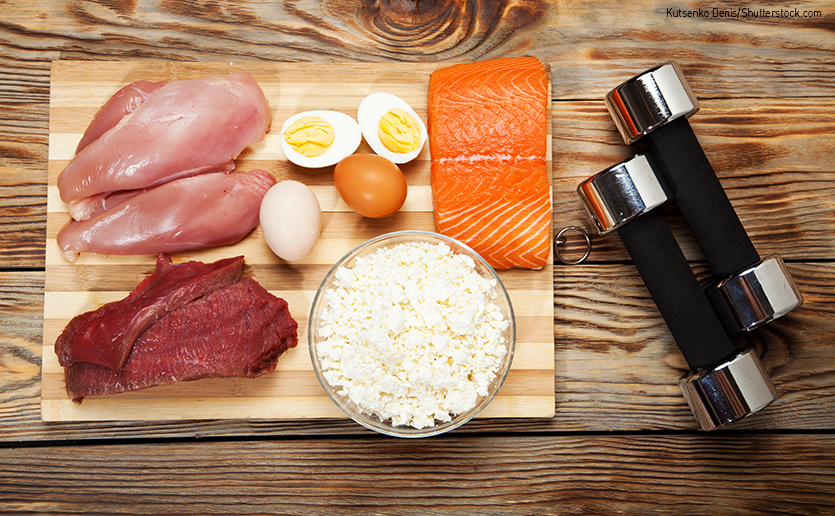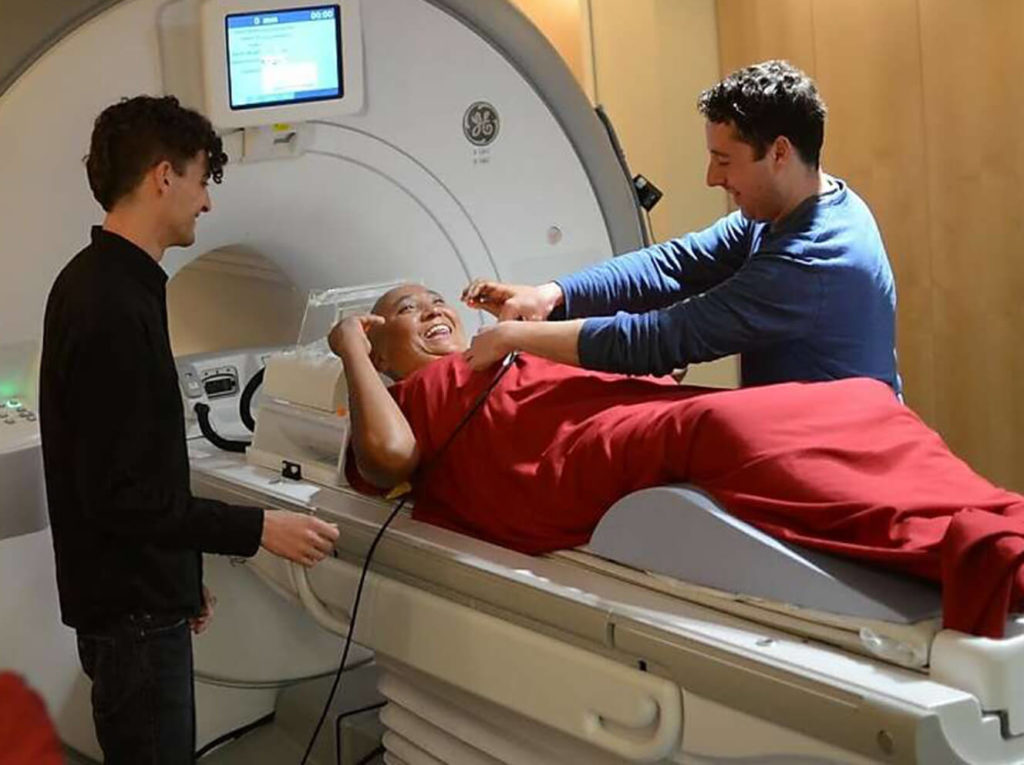Key Takeaways
Whether you have plans to resurrect an exercise routine or are just starting one for the first time, you may be wondering how to best fuel your workouts. Protein tends to receive a good deal of attention and exactly how much to consume is a controversial topic. The good news: most Americans typically consume enough protein to meet their needs overall. That said, to maximize your efforts during exercise, some studies support consuming slightly more protein than the standard recommendation for most healthy Americans.
For many people, protein supplements, while they may be convenient, often aren’t necessary.
How Much Protein Do You Really Need?
This often translates to about ½ gram (and up to ¾ gram) of protein per pound of body weight. (For instance, a 150-pound person might benefit from eating between 75 to 110 grams of protein). Beyond this, research does not show much benefit, unless you happen to moonlight as a professional athlete. Typically, consuming 20 to 40 grams of protein at a time can help support building muscle. This is roughly the amount found in a can of tuna or deck of cards-size portion of chicken. (You can also find the grams of protein on food labels.)
Research shows larger amounts are typically not more helpful — perhaps unfortunate news if you’ve been using workouts to justify eating porterhouse steaks. Animal sources, like fish, chicken, and beef, contain similar amounts of protein per serving. Protein is also found in eggs and dairy sources, like cheese and yogurt, too. Plant-based sources, like beans, nuts and seeds contain protein as well. For many people, protein supplements, while they may be convenient, often aren’t necessary.
The Downside of Too Much Protein
If you consume more protein than your body needs, the excess will be used for energy or stored. This can cause weight gain if you eat more than you need. It can also be hard on your body. Very high protein diets can be tough on organs, like your kidneys, which must work to process the byproducts of protein digestion and may even increase risk of kidney stones.
To keep energy levels up and maximize workouts, aim to get a combination of protein and carbohydrates at meals and snacks.
An overly aggressive protein intake also naturally displaces other foods that offer benefits, like carbohydrates. There is no need to fear carbs — they provide energy to fuel workouts and not eating enough of them can make workouts less efficient and ultimately less effective. Avoiding them also means you may miss out on important nutrients.
Fruits are important carbohydrates and contain potassium, a mineral that gets depleted during exercise. Grains contain B vitamins, like niacin and riboflavin, which are involved in energy metabolism. Not getting enough may undercut your workouts, as these nutrients help make energy more accessible to you — whole grains like brown rice, oats, and quinoa are excellent sources.
Eating Well Beyond Workouts
People often focus on what to eat before or after workouts, but making sure you are eating enough throughout the day is crucial too. Skipping breakfast or lunch can make it much harder to meet your needs and can lead to overeating later in the day. So, to keep energy levels up and maximize workouts, aim to get a combination of protein and carbohydrates at meals and snacks.
This doesn’t need to be anything fancy. Yogurt with a small handful of granola or a banana with peanut butter work well as balanced snacks. Adding tuna, canned chickpeas, or even a side of cottage cheese is a no-cook way to boost your protein intake at meals. This can be especially helpful with entrees that are often lower in protein, like pasta or salads.
In short, most people get enough protein even with higher recommendations for exercise. But if you have diet restrictions, skip meals, or follow a training regimen that rivals that of a linebacker you might benefit from boosting your intake. If you think you might not be getting enough, it’s helpful to first look at your snacks — that’s often where people neglect protein. If you are still concerned, it may be beneficial to talk to a dietitian to ensure you are getting what you need. (To schedule an appointment at Mass General you can call 617-726-2779 to learn more.)

Emily Gelsomin, MLA, RD, LDN, is a senior clinical nutrition specialist at Massachusetts General Hospital. As a registered dietitian, she counsels on medical nutrition therapy on an outpatient basis and is co-director of Be Fit, the hospital’s employee wellness program.
Jointly sponsored by The Clubs at Charles River Park and MGH Nutrition and Food Services, the 10-week program focuses on helping participants “Be Fit and Eat Right.” Every ten weeks, employees from different departments within the hospital compete with each other as they make a commitment to Be Fit. Through the creation of a social environment at the workplace, participants are supported to make progress in personal lifestyle changes with the help of a unique support system that includes a dedicated nutritionist and personal trainer.
Be Fit strives to create a milieu of wellness that extends beyond the 10-week curriculum by offering features to those who are not part of the intensive program. This includes the creation of Choose Well, Eat Well, a rating system designed to help both employees and patients increase awareness of healthy choices at retail eateries within the hospital. They also publish a timely nutrition tip each month.




